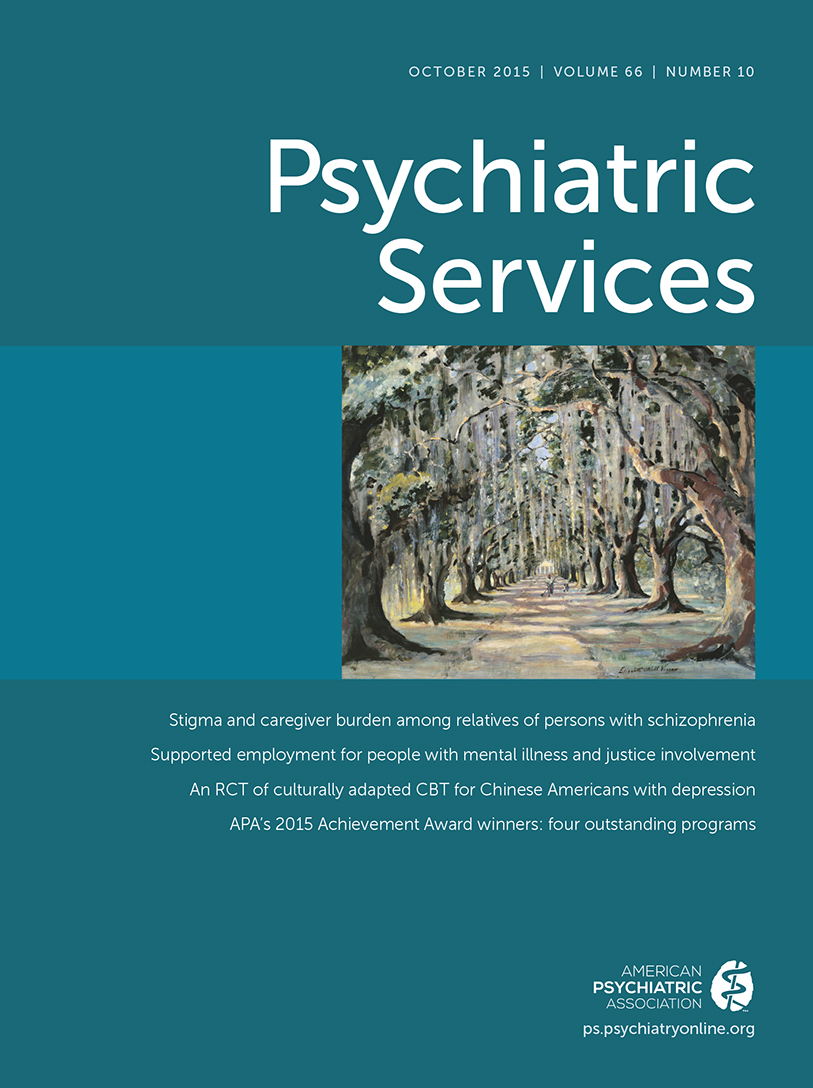2015 APA Achievement Awards: Four Outstanding Programs
Gold Award: Academically or Institutionally Sponsored Program
Through a combination of medications and psychotherapy, a pioneering treatment program for sex offenders in Ottawa, Ontario, Canada, has achieved remarkable success, lowering recidivism rates to near zero. Patients at the Sexual Behaviours Clinic (SBC) voluntarily accept medications designed to control deviant sexual impulses or reduce sex drive while participating in individual and group therapy to help establish better relationships and a healthier sexuality. Treatment is provided by a multidisciplinary team led by psychiatrist J. Paul Fedoroff, M.D. To help ex-offenders avoid falling back into old patterns, the SBC has developed partnerships with community organizations that support and monitor former offenders as they reintegrate into the community after an incarceration. Partners include the Circles of Support and Accountability, a volunteer group that provides friendship, support, and referrals for services to ex-offenders; the high-risk sex offenders unit of the Ottawa police; and probation and parole services. As part of the Integrated Forensic Program at the Royal Ottawa Mental Health Centre, the SBC shares a commitment to education and research, providing postgraduate training at the University of Ottawa and conducting potentially groundbreaking research on new technologies for assessment and treatment of sexual arousal patterns. In recognition of its commitment to improving community safety by providing treatment to a highly marginalized clinical population, the SBC was selected to receive APA’s 2015 Gold Achievement Award in the category of academically or institutionally sponsored programs. A detailed description of the program is available in an online supplement.
Gold Award: Community-Based Program
The premature mortality associated with serious mental illness is largely preventable, and in 2010, Missouri made a commitment to its Medicaid beneficiaries to focus on prevention efforts. Missouri’s Department of Mental Health collaborated with the state’s Medicaid system (MO Health Net) and community mental health system to establish “health homes” throughout the state’s 29 community mental health centers (CMHCs). The health home approach allows eligible Medicaid enrollees with a behavioral disorder to receive mental health care as well as primary care for targeted chronic general medical conditions, including hypertension, asthma, and metabolic syndrome, which can be triggered by antipsychotic medication and are prevalent in this population. Clients receive annual metabolic screening, plus social and functional skills training, treatment planning, fast linkage with posthospitalization services, and overall support of recovery goals. After the first year, the program realized a $98 per-member-per-month reduction in health care costs, resulting in $31 million in Medicaid savings and significantly improved clinical health outcomes for its beneficiaries. These savings are primarily attributed to reductions in hospitalizations and emergency room visits. In recognition of its leadership in establishing health homes to provide integrated care to its CMHC clients and demonstrating dramatic improvement in health outcomes and associated costs of care, Missouri’s CMHC Health Home Program, a “virtual organization” based on innovative Missouri partnerships, was selected to receive APA’s 2015 Gold Achievement Award in the category of community-based programs. A detailed description of the program is available in an online supplement.
Silver Award
For 15 years, the Mental Health Association of East Tennessee (MHAET) has worked in schools to help ensure prevention, early recognition, and treatment of mental health problems. A two-pronged approach reaches both students and teachers: Mental Health 101 for middle and high school students and in-service training for teachers, including Typical or Troubled?, a program of the American Psychiatric Foundation. In the 2014–2015 school year, these programs had a direct impact on nearly 24,000 students in 83 schools in MHAET’s catchment area, which includes Chattanooga, Knoxville, and Johnson City/Kingsport. In recognition of its integrated outreach programs that provide prevention and early intervention for thousands of students annually, MHAET was selected to receive APA’s 2015 Silver Achievement Award. A detailed description of the program is available in an online supplement.
Bronze Award
A private-public partnership in Pennsylvania has developed an innovative approach to statewide implementation of collaborative care for the state’s elderly low-income population. SUSTAIN (SUpporting Seniors receiving Treatment And INtervention) taps key resources of the state’s Department of Aging (DoA) and the University of Pennsylvania’s Department of Psychiatry to identify elders at risk of poor health outcomes, including nursing home admission, and to support them and their primary care prescribers to manage their mental health care. Since 2010, SUSTAIN staff have engaged more than 4,500 patients and family caregivers in a range of behavioral health services. In recognition of its innovative approach to large-scale dissemination of collaborative care for low-income seniors, SUSTAIN was selected to receive APA’s 2015 Bronze Achievement Award. A detailed description of the program is available in an online supplement.



